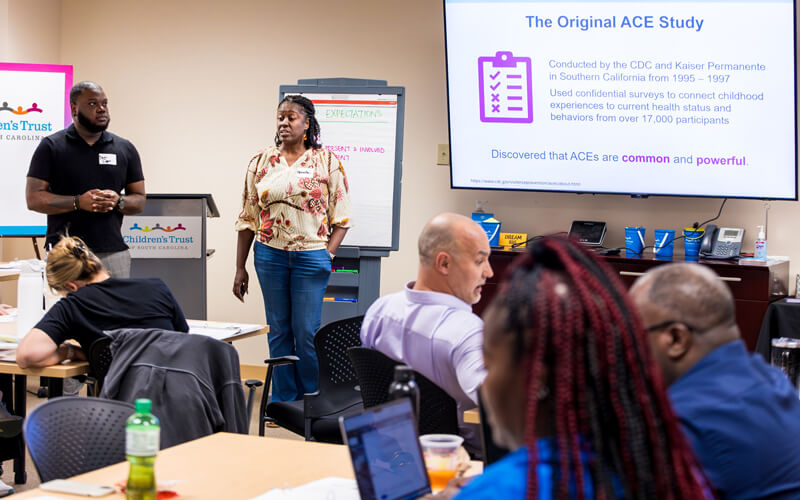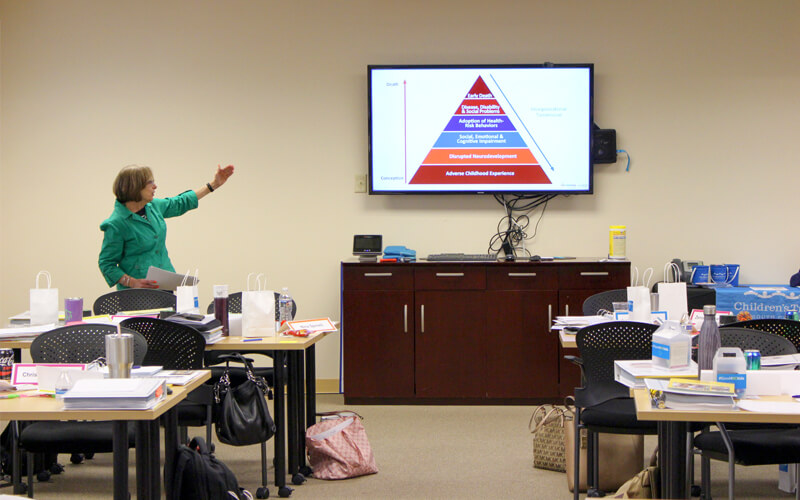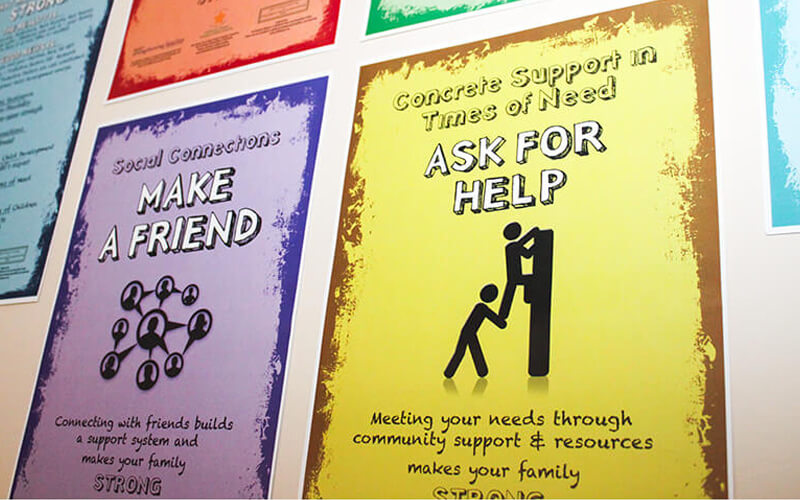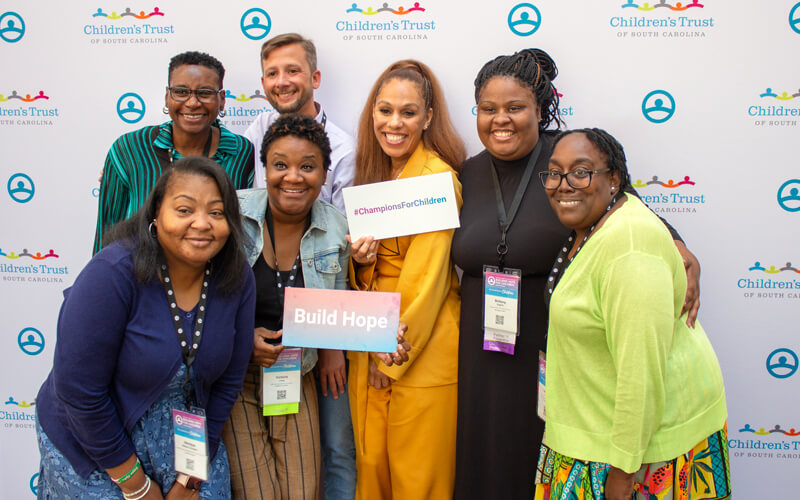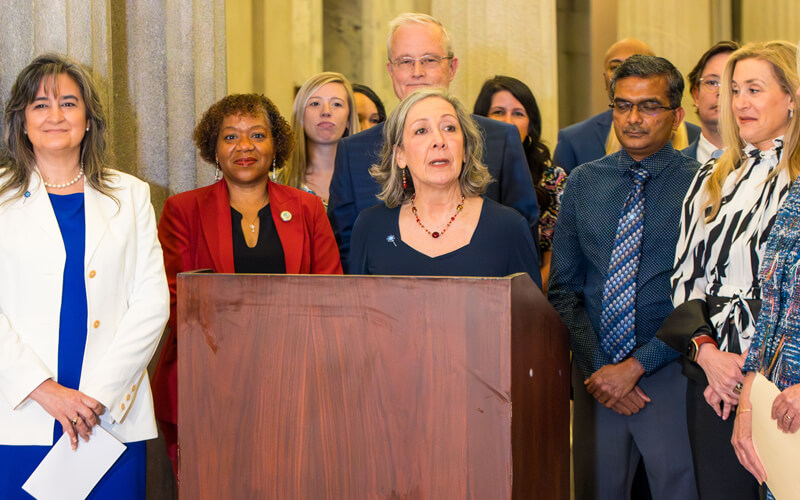Evidence-Based Prevention of Child Abuse & Neglect in South Carolina
Our Work
The unique value of Children’s Trust lies in its comprehensive, collaborative approach to prevention.
Our Unique Model
By integrating evidence-based programs, fostering strategic partnerships, leveraging data for advocacy and investing in workforce development, we build a strong infrastructure for preventing child abuse and neglect. Our commitment to meeting families where they are and tailoring services to community needs guarantees that prevention efforts are effective and sustainable.
Through these multifaceted strategies, Children’s Trust addresses the immediate needs of families and works towards long-term systemic change, striving for a South Carolina where every child thrives. Children’s Trust leverages federal, state and private funding to maximize prevention investments across South Carolina.
Through our network of funded community-based organizations, we have established a prevention ecosystem. These organizations reach every corner of South Carolina and are trained in prevention best practices, including implementing evidence-based programs. Most notably, they have cultivated relationships with their communities and families, ensuring that proven prevention programs operate effectively.

Our Results
Fiscal Year 2024
6,132
children impacted
3,980
families served
57
organizations received prevention funding
Our Programs

Preventing child abuse and neglect requires more than just good intentions—it demands a strategic and sustained investment in effective solutions.
A continuum of evidence-based prevention programs offers families the right support at the right time, ranging from early parent education and home visiting to community-based interventions that foster resilience and enhance protective factors.
These proven strategies not only address crises but also enable families to thrive, lower long-term costs for health and social systems, and create safer, healthier futures for children.
When we invest in prevention, we invest in lasting impact.
Home Visiting
Children’s Trust leads home visiting in South Carolina, providing funding, workforce development, parent educations, convening and coordinating with all home visiting programs and practitioners.
Strengthening Families Program
Designed to help families develop positive discipline practices, stay resilient, reduce conflict, improve parenting skills, and assist children with social skills, relationships and school performance. Available for families with children ages 7-17.
Triple P (Positive Parenting Program)
Triple P is an effective, evidence-based parenting program that offers simple, practical strategies to help parents build strong, healthy relationships, confidently manage their children’s behavior and promote positive child development.
Family Resource Centers
Working to ensure that every family can find the help they need, Children’s Trust supports the statewide Family Support Network to build the capacity of family serving organizations by promoting best practices, standards of quality, capacity building, peer learning and programming initiatives.
Awareness and Prevention Messaging
Prevention starts with awareness. Clear, consistent messaging about child abuse and neglect empowers communities to recognize the signs, understand the root causes and take action before harm occurs.
By sharing information on healthy parenting, positive childhood experiences and community support, prevention messaging helps shift public perception from focusing solely on intervention to building strong foundations that keep families safe and supported.
When we talk openly about prevention, we create a culture that values children’s well-being and believes in protecting every child before abuse or neglect ever begins.
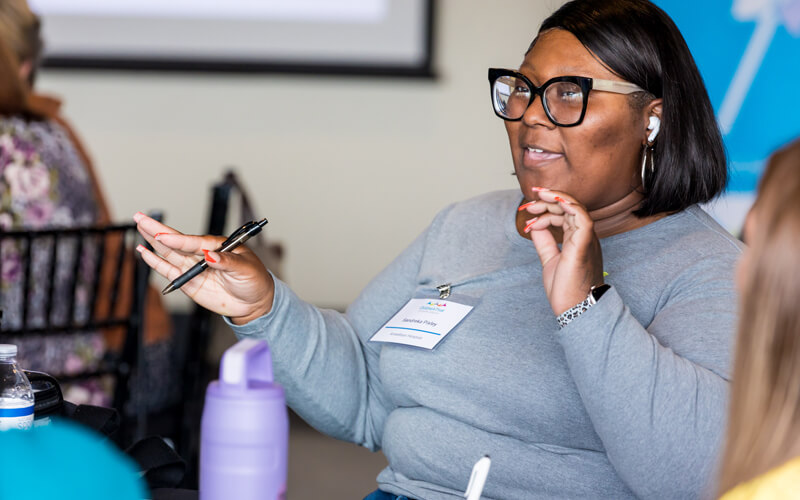
Child Abuse Prevention Month
Child Abuse Prevention (CAP) Month is our annual opportunity to remind each other that every child deserves to grow up safe, loved and supported.
SC Parents
SC Parents is a resource hub for parents and caregivers in South Carolina to help them build the knowledge, skills, community and resources to help their children thrive.
Training
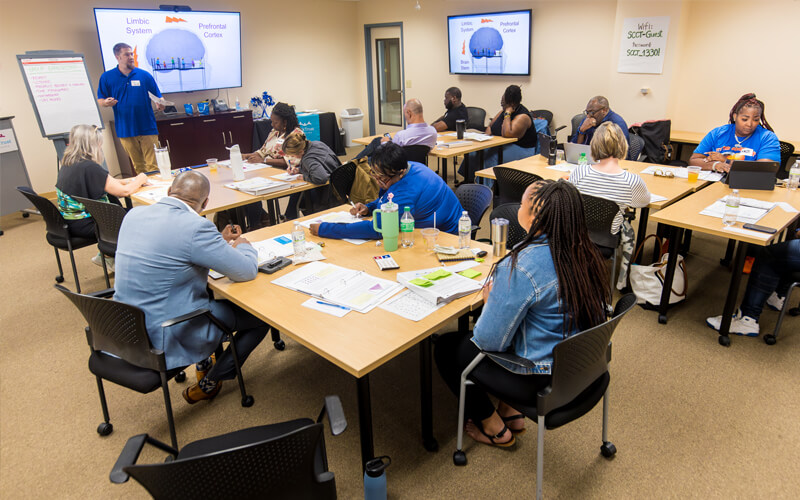
Training professionals in prevention best practices is essential for preventing child abuse and neglect, as it provides them with the knowledge and skills needed to understand the lasting effects of childhood adversity, foster resilience, recognize early warning signs, intervene effectively and support families before harm occurs.
Children’s Trust boasts a team of qualified and engaging trainers, offering affordable training opportunities on various topics.
Become a Trainer in ACEs and Building Resilience
Equip yourself with the knowledge and skills to understand adverse childhood experiences (ACEs) and foster resilience by becoming a certified trainer.
Understanding ACEs and Building Resilience
Gain an understanding of ACEs, protective factors and positive childhood experiences and their lasting impact.
Promoting Protective Factors
Learn a research-informed approach that helps professionals and communities strengthen families, promote child well-being, and reduce the risk of child abuse and neglect by building five key protective factors.
Building Hope for Children Conference
Hosted every other year, this is the premier prevention event for child- and family-serving professionals.
Policy and Advocacy
Advocacy and policy work are vital to child abuse prevention.
They drive systemic change, promote laws and policies supporting families, and prioritize prevention efforts. Policy efforts help create environments where families can thrive, ensuring that prevention is not only possible but prioritized and sustained over time.

Legislative Priorities
Children’s Trust publishes an annual legislative priority agenda to clearly outline our priorities, guide our advocacy efforts and inform policymakers and the public about the systemic changes needed to prevent child abuse and strengthen families.
How to Advocate for Children
Want to make a difference for kids? Learn how to be an effective advocate with simple tools, strategies and tips for raising your voice, building relationships and driving change for children and families.
KIDS COUNT
As the South Carolina leader for the KIDS COUNT project, we collect and share data that informs decision makers on critical child and family well-being measures.
Policy Post
During the legislative sessions, our weekly newsletter shares the latest policy news on issues affecting children and families.
Policy Forum
Our monthly column shares expert opinions on a wide variety of topics related to child and family well-being.
Advisory Committee
Children’s Trust plays a leadership role on the Child Fatality Advisory Committee as it works to understand deaths involving children 17 years and younger that are unexpected, unexplained, suspicious or criminal in nature.
Research and Evaluation

We aim to understand what works, measure impact, improve programs, and ensure that resources are used effectively to support children and families.
Understanding what is happening in our communities is essential for addressing our most urgent issues.
Adverse Childhood Experiences
This series of research briefs on adverse childhood experiences (ACEs) include the data collection process, an overview of ACEs, the prevalence of ACEs and the relationship between ACEs and health and social outcomes.
Positive Childhood Experiences
Positive childhood experiences are the safe, supportive, and nurturing relationships and environments that help children build resilience, foster healthy development and thrive throughout life.
County-level data
We provide county-level data on key indicators of child and family well-being, child maltreatment and adverse childhood experiences.
KIDS COUNT
As the South Carolina leader for the KIDS COUNT project, we collect and share data that informs decision makers on critical child and family well-being measures.
Home Visiting And Maternal Health
We share the research and evidence for why home visiting and supporting maternal health is an effective strategy for child abuse prevention.
Policy Research
We take a deep dive into the research behind policies that can help foster and support child and family well-being.







